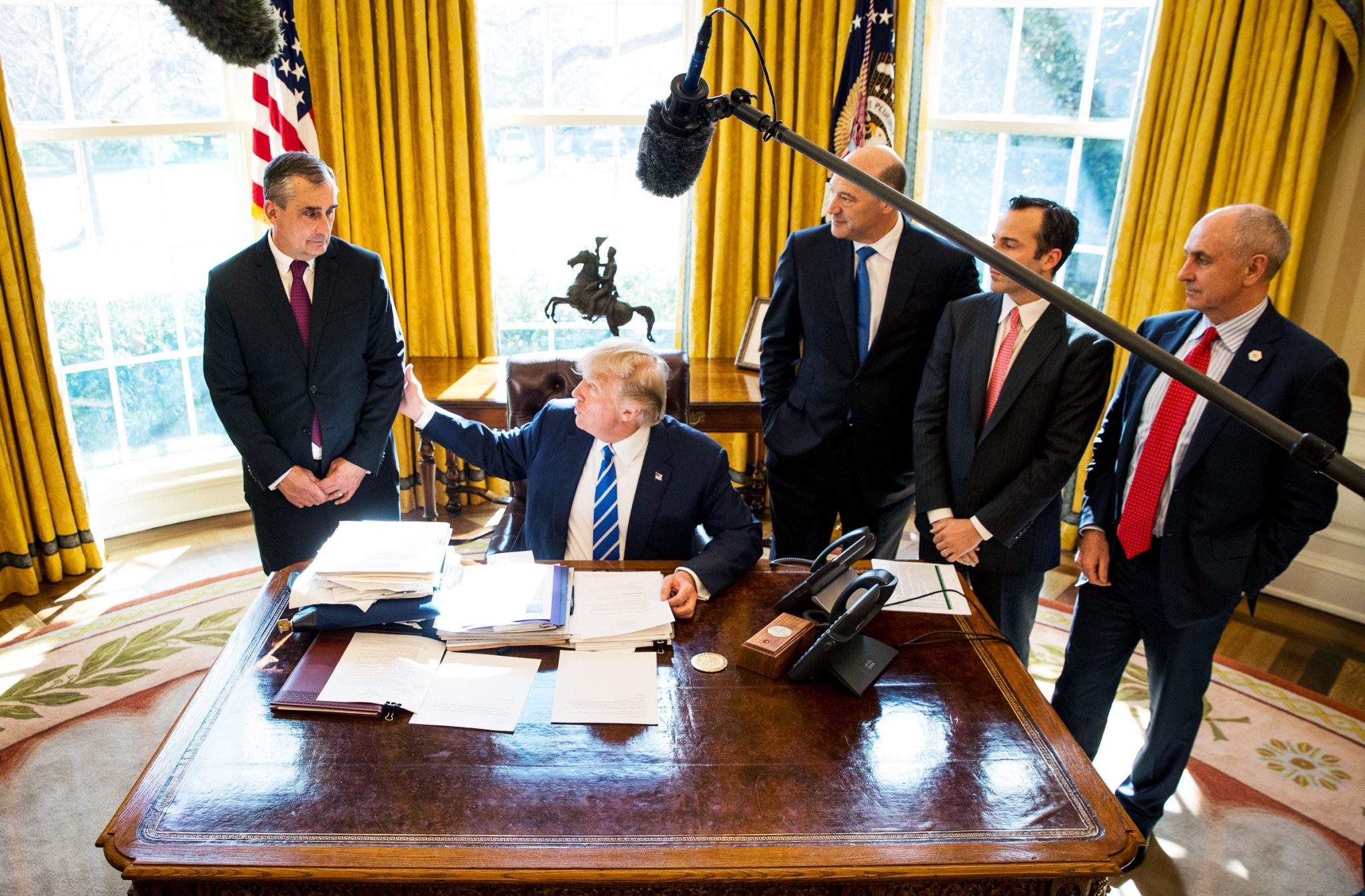President Trump’s recent tweet about Amazon is setting the issue of online sales taxes again inside the highlight.

In a tweet Wednesday criticizing the Washington Post, owned by Amazon founder Jeff Bezos, Trump referred to the booklet as “the mother or father of Amazon no longer paying net taxes (which they must).”
It’s uncertain exactly what Trump meant by “net taxes.”
In April, Amazon started accumulating income taxes on purchases in every country that levies a sales tax. However, Congress has also banned states from taxing customers’ internet access.
But lawmakers and others who want states to be able to pressure online stores to collect income tax have been heartened by Trump’s comment.
“It’s encouraging to see President Trump interact on this issue, and [I] am hopeful we’ll quickly be able to a degree the playing field for Main Street businesses,” stated Rep. Kristi Noem (R-S.D.).
Noem and Sen. Mike Enzi (R-Wyo.) added legislation earlier this year that might allow states to require out-of-nation shops to gather their income taxes in exchange for states simplifying their income tax laws. The payments have bipartisan help, and the Senate easily handed a version of Enzi’s invoice in 2013.
RELATED ARTICLES :
- Samsung Galaxy Note7 Fan Edition sales start on 7th July
- How the net celebrated Harry Potter’s 20th anniversary
- Get Extreme Satisfaction With Sony Ericsson Satio Contract Deals
- Fair utilization coverage of net and cellular statistics carrier vendors
- The Three Components of Mobile Device Management
However, efforts to solve the net tax difficulty have stalled in recent years because a key House GOP chairman prefers an exceptional answer. And it’s uncertain whether Congress will again consider regulation on the subject.
In 1992, the Supreme Court ruled that states can only require shops to collect their income taxes if the businesses have a physical presence within the kingdom. The ruling also said that Congress has the ultimate power to remedy the far-off income tax difficulty.
While taxpayers are speculated to pay taxes on online purchases even when the commercial enterprise doesn’t gather them at the time of sale, few do, and that requirement is not often enforced.
State and nearby governments have driven for congressional rules on online sales taxes as they conflict to collect sufficient income tax receipts to satisfy their revenue goals. Brick-and-mortar retailers who sense they’re at a downside compared to online shops have also subsidized Noem and Enzi’s bills. Amazon is also a supporter.
However, House Judiciary Committee Chairman Bob Goodlatte (R-Va.), whose panel has jurisdiction over the issue, has expressed reservations about the bill that exceeded the Senate in 2013 and has his very own ideas.
Goodlatte launched a dialogue draft last year that might tax faraway income using the tax base of the store’s state and the tax rate of the customer’s country. He recently signed onto a law delivered by Rep. Jim Sensenbrenner (R-Wis.) that might bar states from requiring retailers in other jurisdictions to collect their sales taxes.
Goodlatte says he desires to make sure that groups are protected from rules in states wherein they do now not live. He stated that his draft bill makes it simpler for brick-and-mortar retailers to compete with online corporations.
“We will hold to discuss the draft law and the issue as an entire with lawmakers and stakeholders,” he said.
Goodlatte isn’t always the only one concerned about Law Li, Kasem, and Enzi’s offer. Other GOP lawmakers and fiscally conservative businesses have also voiced worries, and numerous Senate Democrats in states without sales taxes voted for the 2013 invoice.
Carl Szabo — senior coverage counsel at NetChoice, which represents e-trade organizations — stated that he’s worried that rules like the 2013 invoice could challenge businesses to hundreds of taxing jurisdictions and place them in the reach of a couple of state tax auditors. That could be “enough to make it close to not possible for small organizations to compete online,” he stated.
The competing techniques to the difficulty have brought about little movement in Congress, frustrating individuals who want to assist states in collecting online income taxes.
Rep. Steve Womack (R-Ark.), a co-sponsor of Noem’s bill, said he’d “truly like for management to ratchet up a bit stressful at the authorizing committee to get something marked up.”
With no sign, the House Judiciary Committee will act soon, though Womack stated he thinks the Senate should take the lead, together with online income tax law in a broader degree, and send it to the House.
For now, the sponsors of Noem’s bill have intentionally “kept it beneath the noise” of better-profile problems with healthcare, tax reform, and the price range and are “looking to allow some of the dirt settle in Washington earlier than we move similarly ahead,” Womack stated.
While Congress has been sluggish to act, states have been taking movement on their personalities to mandate the collection of sales taxes on online purchases.
Some accept that the problem may also, in the end, be resolved with the aid of the Supreme Court.
They observe the flurry of activity within the states and the reality that Justice Anthony Kennedy, in a 2015 opinion, said he desired the courtroom to reexamine the problem.
The most intently watched case stems from a regulation South Dakota enacted a year after Kennedy’s opinion that requires certain out-of-country online retailers to collect their taxes. The case is presently before the South Dakota Supreme Court. If that court docket policies towards South Dakota, the kingdom is likely to petition the case to the U.S. Supreme Court.
Max Behlke, director of budget and tax coverage for the National Conference of State Legislatures, said that if the Supreme Court overturns its 1992 ruling, kingdom and local governments will likely not want Congress to offer an answer. They’ll circulate to bypass their legal guidelines on collecting online sales taxes.




